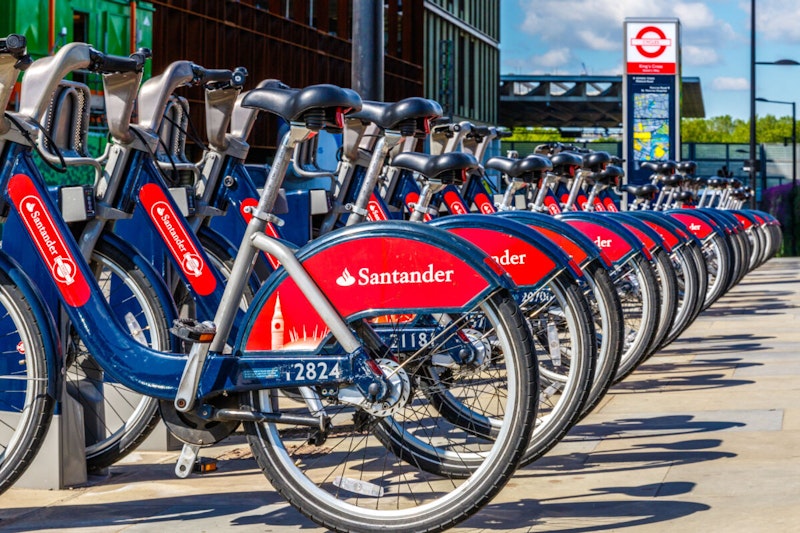Study Notes
GCSE Geography | Sustainable Energy (Resource Management - Energy 6)
- Level:
- GCSE
- Board:
- AQA, Edexcel, OCR, Eduqas
Last updated 25 May 2024
For an energy supply to be sustainable it needs to meet the needs of today's population without harming the ability of future generations to meet their energy needs - which becomes increasingly challenging as global population growth and economic development drive up the demand for fuel.
Sustainable energy has three principles at its heart:
- Ensuring that carbon emissions are significantly lowered in order to fight climate change - which means reducing our reliance on fossil fuels
- Developing alternative sources of energy and making renewable technology more efficient so renewable energy can become more reliable and generate energy on a larger scale
- Increasing energy efficiency through developing technology that needs less energy, but also stopping energy wastage - known as energy conservation
There are lots of ways we can conserve energy...
Personal energy use
- Not leaving appliances on standby and not leaving phones, tablets, laptops, etc, charging overnight
- Using energy-efficient appliances (such as washing machines that don't need to be heated so much) and low-energy light bulbs
- Only use dishwashers and washing machines when they are fully loaded
- Wearing extra layers of clothing in the winter so you don't need to heat the house so much
- Close blinds and curtains to trap in heat in the winter (to reduce the need for central heating) and cool the house in the summer (to reduce the need for electric fans or air conditioning units)
- Reducing car use by walking and cycling short journeys
Building design
Efficient central heating systems - old gas boilers are not particularly efficient and use a lot of energy to heat homes so should be replaced by condensing boilers which are much more efficient. Many homes are now using ground source heat pumps which use less energy as they recover a lot of heat.
Small-scale renewable energy - installing solar panels on roofs or small wind turbines can be used to generate electricity and heat water.
Double or triple-glazed windows - heat is lost through windows so the better the glazing the less energy is lost, which will have an impact on heating bills
Insulation - heat rises so the top of the house is always warmer, however heat is also lost through poorly insulated roof spaces so homes need to have proper loft insulation. Modern homes are often built with cavity walls (hollow walls) - it is quick and easy to insulate this space to reduce heat loss, however older homes tend to have solid walls to insulation has to be put on the inside or outside of the walls. Proper insulation throughout will reduce heat loss and help to lower energy bills.
Reducing drafts - old houses are full of draughts, particularly through fireplaces and big gaps in floorboards. But heat also escapes through gaps around doors and windows so these need to be sealed up to prevent heat loss.
The thermal image below shows how much heat is lost through poor insulation.

In the workplace and schools
- Setting the thermostat to 19°C or less - offices and classrooms are full of people therefore do not to be heated anymore than this
- Leaving doors and windows shut when heating or air-conditioning systems are working - this also means that energy is not wasted heating or cooling places that don't need it, such as storerooms
- Switching off computers and printers properly at the end of the day - but also not leaving these on charge all day as they don't need 8 hours of charging (and it reduces battery damage)
- Keep blinds open to reduce the need for artificial light - which is better for workers and students than fluorescent strip lights
- Use energy-efficient lighting and ensuring that lights are not left on when rooms are empty - lights activated by movement can help with this
Transport
- Improving public transport systems and reducing travel costs to encourage people to use their cars less
- Safer cycle path networks to encourage people to use their bikes more and reduce car use
- Cycle hire schemes like the Santander bikes in London (see image below), so people can hire bikes for short periods
- Car-share schemes to reduce the numbers of cars on the road, particularly during rush hour
- Investment into electric vehicles - better charging networks, larger mileage range, more efficient batteries, etc - also reducing the cost of electric and hybrid cars
- Reducing air travel, particularly domestic flights where train travel is an option

You might also like

Cornish wind farm hits 25th anniversary and is set for the next 25
3rd January 2017

Sustainable Cities - World Bank Photo Competition
31st October 2017
UK’s biggest solar farm gets the go ahead
29th May 2020

Why Keep All the Lights On This Christmas?
14th December 2022
‘Clear the Deck’ Interactive Revision Quiz for Paper 2: Resource Management - UK
Quizzes & Activities
Resource Management (Energy) | AQA GCSE Geography
Quizzes & Activities